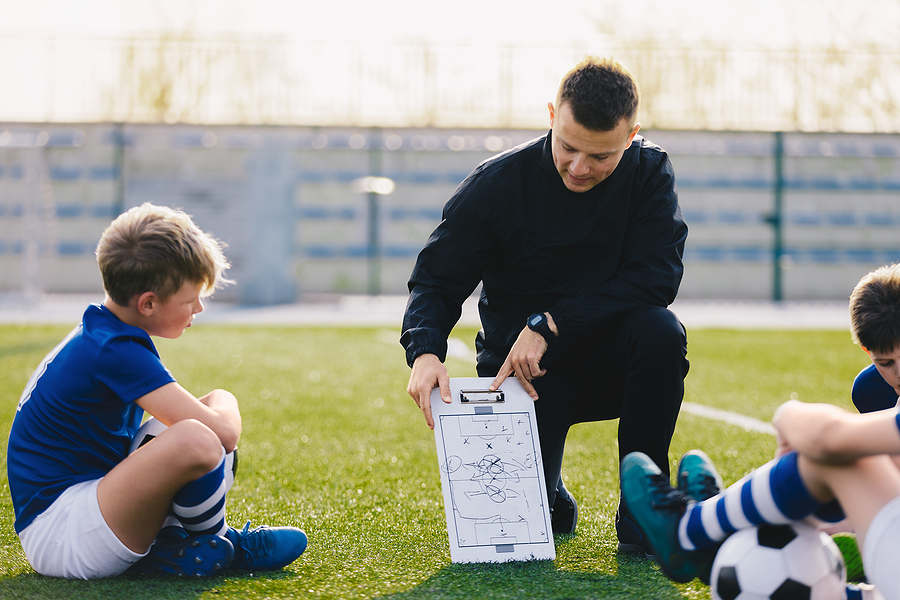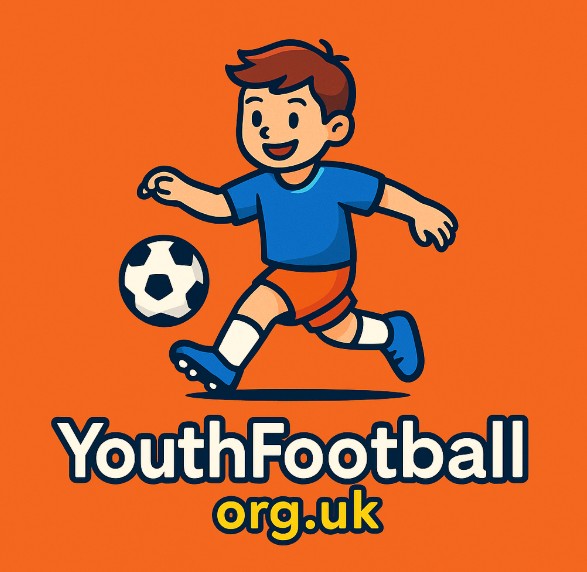
Coaching youth football is one of the most rewarding roles in grassroots sport. Whether you’re a parent helping out with your child’s team, a former player looking to give back, or someone completely new to the game, becoming a coach offers a chance to shape lives, build confidence, and share the joy of football.
This guide walks you through everything you need to know to get started as a youth football coach in the UK. From qualifications and responsibilities to the everyday realities of coaching children, this is your complete introduction to making a difference from the sidelines.
Why Become a Youth Football Coach?
Before diving into the how, let’s look at the why. Coaching youth football isn’t just about tactics and drills. It’s about creating a positive, safe environment where children can learn, develop, and fall in love with the game. Good coaches do more than teach football—they build character, instil values, and act as mentors.
Coaching is:
- Rewarding: You see kids grow in confidence, develop new skills, and make lasting friendships.
- Social: You become part of a community of parents, players, and volunteers.
- Flexible: Many clubs need help at all levels, whether you can commit to every session or just occasional matchdays.
- Impactful: A great coach can change how a child sees sport—and themselves—for life.
Getting Started: Do I Need to Be an Expert?
Absolutely not. While experience with football helps, it’s not essential. What matters more is enthusiasm, reliability, and a willingness to learn. Many grassroots coaches start with no formal football background at all.
What you’ll need is:
- Patience and understanding of how kids learn
- A positive attitude that encourages effort, not just results
- Basic organisational skills for planning and communication
The rest you can learn through training, practice, and support from your club and fellow coaches.
FA Coaching Qualifications: The Essentials
To coach a youth team in an FA-affiliated club or league, you’ll need to complete a few key certifications. These are designed to ensure a safe, inclusive, and educational environment for every child.
1. FA Playmaker Course (Optional but Useful)
- Free, online course aimed at parents and volunteers.
- Covers basics like organising sessions, safeguarding, and supporting matchdays.
2. Introduction to Coaching Football (Level 1)
- Official FA qualification to become a coach.
- Combines online modules and practical learning.
- Covers coaching principles, session planning, child development, and more.
3. FA Safeguarding Children Certificate
- Mandatory for anyone working with under-18s.
- Ensures you’re aware of how to protect young players and respond to concerns.
4. FA Emergency First Aid in Football (EFAiF)
- Teaches you how to handle injuries, emergencies, and player wellbeing.
5. FA Enhanced DBS Check
- Required for all youth coaches to ensure the safety of players.
Once these are complete, you’re fully qualified to lead a team.
Finding a Coaching Opportunity
Most coaches begin by volunteering at a local grassroots club, often one their child is already part of. Here’s how to get started:
- Ask your local club if they need help—many are short on coaches.
- Visit your County FA website to find opportunities and support.
- Search The FA’s find-a-club tool to connect with teams near you.
- Start as an assistant coach and build confidence before leading your own team.
Clubs are usually very supportive of new volunteers and will help you through the qualification process.
What Coaching Kids Really Looks Like
Coaching at grassroots level is very different from what you see on TV. You’re not Guardiola. You’re more like a mentor, teacher, organiser, cheerleader, and occasional referee all rolled into one.
Expect to:
- Set up and pack away cones, goals, and bibs
- Deal with forgotten boots, missing shin pads, and occasional tears
- Make every child feel included, especially those struggling or shy
- Keep things fun, fair, and age-appropriate
And yes, you’ll occasionally have to ask a parent not to shout instructions from the sideline!
Planning a Training Session
You don’t need to reinvent the wheel. A good training session for kids usually follows this structure:
- Warm-Up: Fun games to get them moving
- Skill Activity: A drill focusing on one skill (dribbling, passing, shooting)
- Conditioned Game: A small game that encourages use of the skill
- Match Play: Let them play a match and enjoy
Each part should last 10-20 minutes depending on age and attention span. Keep things active and varied, and always finish on a positive note.
Managing Behaviour and Building Confidence
Coaches play a big part in setting the tone for behaviour and team culture. Keep these tips in mind:
- Use praise generously and be specific (“Great pass to your teammate!”)
- Set clear rules and expectations early on
- Encourage teamwork over individualism
- Avoid over-coaching during matches—let kids make decisions
- Include everyone, especially quieter or less confident players
Working with Parents
Parents are key to a successful youth team. Keep them informed and involved:
- Communicate clearly about training times, kit, and matchdays
- Share your approach to coaching and learning
- Encourage supportive behaviour on the sidelines
If there are issues (e.g. over-competitive parents), address them politely but firmly. Your role is to protect the experience of all players.
Being Part of a Club
Most grassroots clubs offer a supportive environment for coaches. They may provide:
- Training equipment and kit
- Help with DBS checks and admin
- Access to development courses and peer support
Some even have mentoring schemes or coach development coordinators.
Many clubs also ask volunteers to take part in setting up pitches, organising tournaments, or fundraising. It’s all part of the community.
Continuing Your Coaching Journey
Once you’re up and running, you may want to continue learning and improving:
- FA Level 2 (UEFA C Licence): More tactical and technical depth
- Youth Modules (now part of the England DNA): Focus on child-centred coaching
- Specialist Courses: For goalkeeping, futsal, disability football, and more
You might also choose to specialise in certain age groups or styles of play. The pathway is flexible and adaptable.
Final Thoughts
Being a youth football coach is one of the most fulfilling ways to get involved in the game. You don’t need to be a football genius—you just need a willingness to learn, a love of the game, and a commitment to helping children grow.
You’ll make mistakes, get muddy, and probably forget a few cones along the way. But you’ll also get high-fives, thank-yous, and proud moments that stay with you for life.
If you’re ready to make a difference, there’s a team out there that needs someone just like you.
